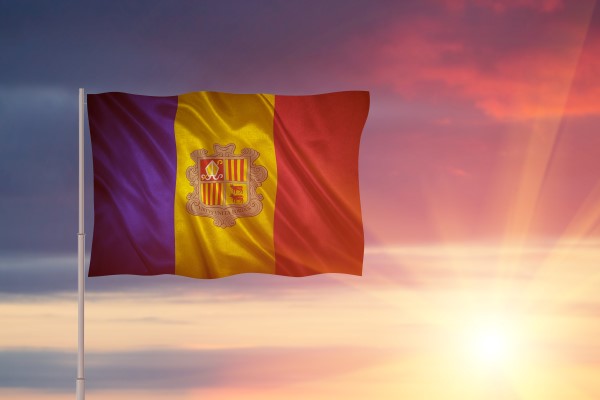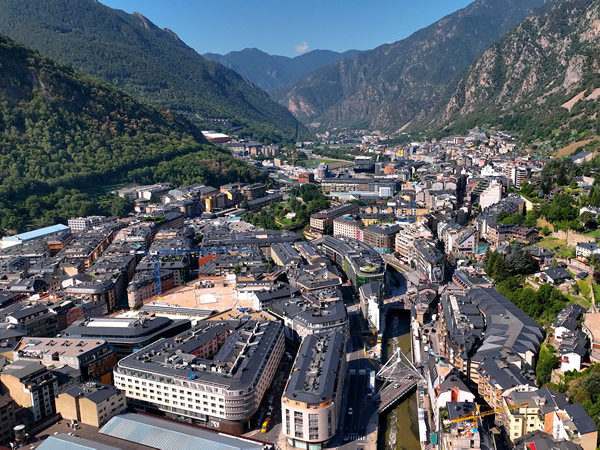
A tax resident in Andorra is a person who has established their residence in the country and, therefore, is subject to Andorran tax laws. This means that the person pays taxes in Andorra and can benefit from its tax system, which is known to be one of the most favorable in Europe.
Any residence authorization in Andorra must adhere to the country's quota system. Then, for each type of residence, there are specific requirements that must be met.
In Andorra, there are two main types of residence: active residence and passive residence. Each has its own characteristics and requirements.
1. Requirements for Active Residence in Andorra
Active residence in Andorra differs depending on whether it is self-employed or salaried.
1.1 Active residence for self-employed persons
This type of residence allows the individual to reside and carry out self-employed activities permanently during the authorization period.
The main requirements to obtain a self-employment residence permit to work and reside in Andorra are, among others:
- Complete the application for self-employment residence and work authorization.
- Establish permanent residence in the Principality of Andorra.
- Provide a document proving accommodation (rental contract or property title). If the property owner is not the person applying for residence, a certificate of domicile must be provided.
- Submit the required personal documents:
- Passport (original and copy). Citizens of European Union and European Economic Area member states may alternatively present the original and copy of their National Identity Document.
- A criminal record certificate from the country of origin, nationality, and residence.
- Color photograph (35 x 45 mm).
- Document proving marital status.
- Curriculum vitae along with the original and copies of diplomas or other documents proving professional qualifications.
- Complete the documents for the deposit with the Andorran Financial Authority (AFA).
- Pass a medical examination.
1.2 Active residence for salaried persons
This type of residence authorizes the individual to reside and work in the country permanently and effectively during the validity of the authorization.
The main requirements to obtain an employee residence permit to work and reside in Andorra are, among others:
- Complete the immigration authorization application for residents.
- Have a work contract with a company legally established in the country.
- Establish permanent residence in the Principality of Andorra.
- Provide a document proving accommodation (rental contract or property title). If the property owner is not the person applying for residence, a certificate of domicile must be provided.
- Submit the required personal documents:
- Passport (original and copy). Citizens of European Union and European Economic Area member states may alternatively present the original and copy of their National Identity Document.
- A criminal record certificate from the country of origin, nationality, and residence.
- Color photograph (35 x 45 mm).
- Document proving marital status.
- Curriculum vitae along with the original and copies of diplomas or other documents proving professional qualifications.
- Pass a medical examination.
An important requirement to note is that all official documents issued by foreign state authorities must be properly authenticated with the Apostille of the Hague Convention or duly legalized.
Additionally, in both types of active residence, the applicant must register with the Comú of the parish where they reside within 3 months from the date of the immigration authorization grant and provide proof of this registration within the same period.
2. Requirements for passive or non-working residence in Andorra
The Government of Andorra recognizes up to 4 different types of passive or non-lucrative residence in Andorra:
- Residence without lucrative activity.
- Residence for professionals with international outreach.
- Residence for reasons of scientific, cultural, and sports interest.
- Residence for admission to private nursing homes or private medical or therapeutic care centers.
Beyond the identity documentation required to obtain any of the above residences, the requirements for these types of residence include:
Minimum stay
To be considered a tax resident in Andorra, you must spend at least 90 days a year in the country. This requirement ensures that the person genuinely lives in Andorra and is not simply using the country for tax benefits without significant presence.

Non-remunerated deposit
Deposit a non-remunerated amount of €47,500 with the Andorran Financial Authority (AFA).
In addition, the main holder must also deposit a non-remunerated amount of €9,500 for each dependent who acquires the status of a non-lucrative resident.
This requirement applies to all types of passive residence, except in cases of residence for admission to private nursing homes or medical care centers.
Health, disability, and old-age insurance
Justify and maintain valid health, disability, and old-age insurance for the applicant and their dependents, or their spouse or stable partner, for the entire duration of the same coverage, except for minors and persons over sixty, who must justify and maintain valid health insurance for Andorra.
Holder’s income
Prove that the main holder has annual income exceeding 300% of the annual minimum wage in effect, adding 100% of this indicator for each dependent. This can be evidenced, among other ways, by a retirement and/or disability pension certificate, a tax return from the previous year in the last country of residence, and the corresponding bank certificates.

Comú certificate
Within 3 months after obtaining said authorization, a certificate from the Comú where the holder resides must be provided.
Professional experience in the sector
In the case of residence for professionals with international outreach or for reasons of scientific, cultural, and sports interest, it must be proven that the individual has a sufficient level of qualification and professional experience in the sector in which the activity is carried out (Curriculum Vitae, Certified Qualifications).
Also, depending on the type of passive residence requested, the following must be provided additionally:
Specific requirements for residence without lucrative activity

For residents without lucrative activity, a minimum investment in Andorran assets of at least €600,000 is required, which may include:
- Real estate located in the territory of the Principality of Andorra
- Investments in local companies
- Deposits in Andorran financial institutions or debt instruments issued by the Andorran public administration
- Life insurance products contracted with entities residing in Andorra
- Non-remunerated deposits with the AFA
In case the corresponding investment has not been made, the applicant must declare, at the time of formalizing the application, their commitment to make the investment within a period of 6 months. Once this period has passed, the resident must provide, under the conditions established by regulations, the documents proving the investment.
Specific requirements for Residence for professionals with international projection
- The headquarters or base where the professional activity is carried out must be located in the territory of the Principality of Andorra.
- The professional with international projection must have no more than one employee under a labor contract.
- At least 85% of the services provided by the professional must be used in a country or territory other than Andorra.
Specific requirements for Residence for reasons of scientific, cultural, and sporting interest
- At least 85% of the services provided by the professional must be used in a country or territory other than Andorra.